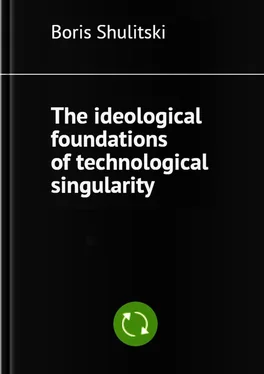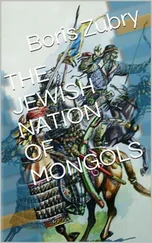At present, the understanding of the term “dialectics” is multidimensional. The use of the dialectical method in specific aspects of research has generated many variants of derived concrete dialectical theories, such as dialectical materialism, dialectic existentialism, dialectical structuralism, dialectical negativism, etc. And it is completely incorrect to use the term “dialectics” to denote these theories as then materialistic, existential, structural, negative, etc. dialectics. The dialectical theories that followed the Hegelian philosophical system, including dialectical materialism, did not introduce anything fundamentally new to the dialectical methodology; therefore, Hegel’s philosophical system is of undoubted interest as the primary point of genesis for the dialectical method and the example of its use in the study of nature, society and cognition.
Thus, first of all, the term “ dialectics "means the philosophical method of researching nature, society and cognition . Only from the standpoint of dialectics one can understand the way of the objective truth formation, complex, full of contradictions, the connection of the elements of absolute and relative, stable and changeable at each stage of the science development, transitions from one form of generalization to another, deeper forms of the surrounding world cognition.
1.2 General guidelines for dialectical method
The reality, according to Hegel’s dialectic, does not stand still, but changes, develops. Everything that was valid, reasonable, necessary some time ago, is denied in the course of the next time period, loses its right to exist. The place of dying reality is occupied by a new one, more viable. Hence the conclusion: “ everything that is real in the field of human history becomes unreasonable over time, and everything that is rational in human heads has reason to become real, no matter how it contradicts existing apparent reality ” (30-XXI, 275).
Hegel’s dialectic, as Engels notes, finally refuted all sorts of ideas about the final significance of the results of human thinking and action. In other words, the process of cognition can never be completed, since the object of knowledge, namely, the nature and society, is in constant change and development. “For dialectic philosophy,” writes F. Engels, “there is nothing entirely and permanently established, unconditional, sacred. On everything and in everything it sees the signs of an inevitable fall, and nothing can stand it except for the continuous process of emergence and destruction, the infinite ascent from the lower to the higher. It itself is only a simple reflection of this process in the human brain…” (30-XXI, 276). “ We should never forget that all the knowledge we have acquired is pro re nata limited and are determined by the circumstances in which we acquired them… What is stated as necessary is formed by the pure coincidences, and what is considered a coincidence is in fact a form, beyond which necessity is hidden ” (30-XXI, 302). These are revolutionary conclusions implied by very spirit of Hegel’s dialectic.
1.3 Universality of the dialectical method of knowledge
The universality of the dialectic theory of development has recently caused great debates, and in the course of criticism of the recent past, dialectics in all its variants is often rejected as “the ideological support of totalitarianism”. They avoid dialectic, guided by very superficial considerations: the collapse of the social system, which, as it seemed, was constructed on the foundations of materialistic dialectics; failure to build a system of categories of dialectics suitable for any material; unpromising controversy about the relationship between formal-logical and dialectical contradictions; scandalous condemnation from the standpoint of dialectical materialism of the most outstanding achievements of modern scientific knowledge (31, 33).
K. Popper, for example, believes that “Hegel and his school put forward a theory that exaggerates the significance of dialectics and is threateningly deceptive” (5, 127). One can hardly take seriously the criticism of dialectics by K. Popper, because it is aimed at the most primitive ideas about dialectics that have taken place in Russian philosophy and are associated with an understanding of the contradictions in formal logic and dialectics. A number of researchers (for example, V. Sadovsky, V. Smirnov, and others) do not accept dialectics because “dialectics in Hegelian (and, therefore, in Marxist) understanding forms the basis of the ideology of both fascist and Soviet totalitarianism” (5, 139). This is similar to the absurd rejection, for example, of the theory of
atomic physics only because it is the basis of destructive nuclear weapons.
It must be admitted that the baselines of the “professional dialecticians” themselves in Soviet philosophy also contributed to the rejection of dialectics. Unfortunately, serious and honest supporters of the dialectics tradition, who sought to rely on the experience of the history of philosophy, primarily on the German classics, failed to adequately modernize the dialectic and demonstrate its constructive potential for the philosophical and scientific thought of our time (5, 152). However, this does not diminish the significance of dialectics as a phenomenon of philosophical culture. According to B. S. Bibler, – dialectics is “the most characteristic offspring of philosophical logic – especially that of the modern age ” (5, 171). “It is wrong to disregard the dialectical tradition in philosophy — said B.S. Shvyrev, – it is necessary to clearly identify its real semantic content, which has not lost its constructive significance in our days ” (5, 158). At present, in modern Western philosophy, there is a new interest in dialectics, and “well-known experts in symbolic logic are discussing the possibility of creating systems of dialectical logic” (5, 118). A number of research schools are solving the problem not only of rehabilitation, but also of the further development and improvement of the theory of dialectics (39, 130).
Despite numerous and fruitless discussions, the dialectics in rather vigorous and quite correct way, without references to Kant, Hegel or Marx, is mastered by modern natural scientists. Whatever branch of knowledge we take, dialectic situations are found everywhere, more precisely, movements towards dialectics, that is, towards acquiring a holistic vision of the object of knowledge. First of all, this refers to the branches of modern scientific knowledge, where contradictions in the dialectical sense are presented in the most obvious way: a view in the biological theory of evolution, exploited by the methodologists of science in the branch of special scientific knowledge; set, topos in mathematics; phoneme in linguistics; socio-economic formation in historical knowledge, etc. (32, 50). It is exactly the dialectical contrariety to create the implications, which allow things to enter the historical process. All the sciences, that are on the evolutionary path, finally come to the conclusion on the necessity of the dialectically contrary characteristics of the evolving object (31, 32). According to the Nobel laureate I. Prigogine, the time of the science of Galileo, Newton, Kant is over, and the time of the science of Hegel, Darwin and, especially, Marx begins (31, 45).
Thus, it can be stated the following: dialectics, dialectical logic is one of the most significant achievements of philosophy for all the time of its existence, is “ the central element of philosophy ”. The attention of philosophy to dialectics as a universal logic of thinking is especially evident in periods when philosophical reflection on thinking reaches an extremely developed form: it was so in antiquity, in the era of German classics, in Marxism. During these periods, among all the forms and methods of human attitude to being, thinking that was considered to be the most important, and dialectical logic is today the most profound system of thinking (39, 77). The idea of dialectics is the core of modern scientific thinking.
Читать дальше










